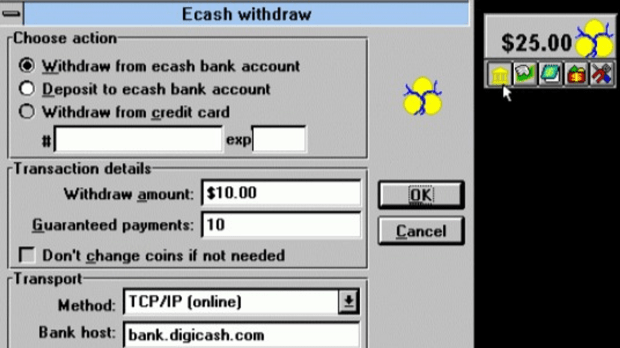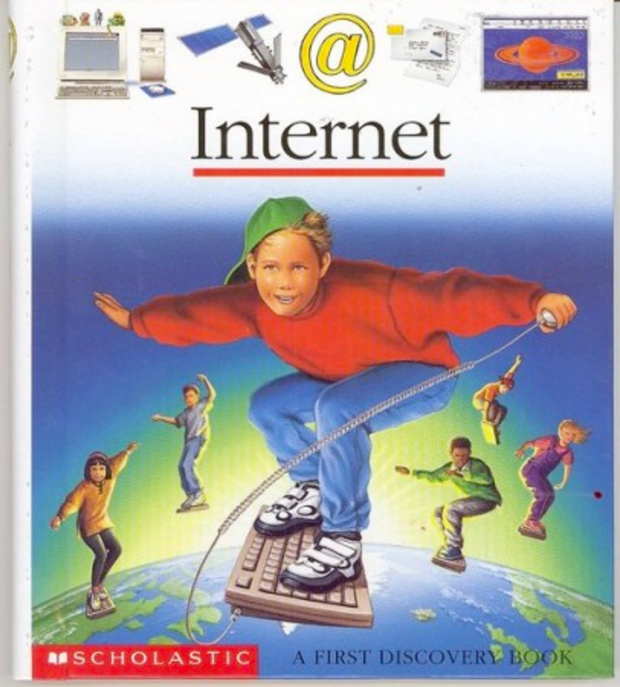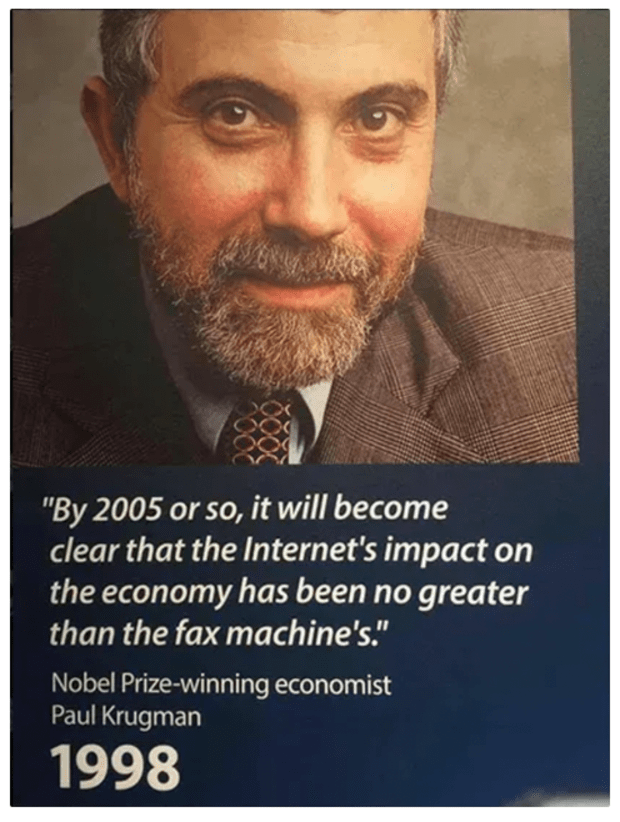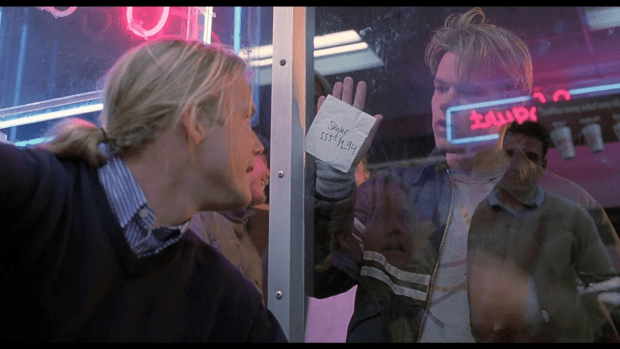A 1999 article by Nick Szabo is usually cited to argue that micropayments don’t work. However with Bitcoin and the Lighting Community, now they do.
That is an opinion editorial by Jared Nusinoff, the founder and CEO of Mash, a Bitcoin- and Lightning-Community-based micropayments platform.
I’m sick and bored with listening to about Nick Szabo’s “Micropayments And Psychological Transaction Prices” put up from 1999.
When speaking about micropayments, there are numerous doubters and detractors. For them, micropayments is a “soiled phrase.” They virtually at all times reference the “failed” makes an attempt associated to making a digital forex akin to bitcoin — just like the eCash fee system by David Chaum’s Digicash within the ’80’s and ’90s. Sure, it failed. However that’s not about micropayments.
They often reference failed makes an attempt at bundling content material, charging customers subscription charges after which micro-distributing the income based mostly on utilization. However that’s not about micropayments, both.

They don’t contemplate the successes of the net functions of micropayments from over 15 years in the past, as seen in gaming and digital media. They don’t rethink what is feasible now that we have now enabling infrastructures like Bitcoin and the Lightning Community. All of them reference and anchor on this “kill shot” essay by Nick Szabo.
“It will by no means work. Haven’t you learn ‘Micropayments And Psychological Transaction Prices’ by Nick Szabo?”
“Is Szabo fallacious about one thing? Is that even attainable? That may’t be!!!!”
Or perhaps, Szabo could have been proper on the time and issues have modified within the subsequent 24 years.
There are at all times detractors.
It didn’t work then, it gained’t work now. Did they neglect to ask “why now?” and “what’s modified?” Did they pause to correctly contemplate what the Szabo article was truly arguing? Do the use instances referenced apply to the experiences in query?
It’s been 24 years. Issues have modified. Expertise adjustments. The web is completely different. Cash is completely different. The alternatives to use micropayments to experiences are completely different.
And let’s not ignore that Szabo’s opinion has been additional articulated, and that it modified. He wrote a follow-up paper, in 2007, mentioning among the locations that micropayments (not nano-payments) are working. And the additional dialogue within the feedback sections is incredible, and add colour to his ideas, a few of that are referenced beneath.
Sure, Psychological Transaction Prices Matter
“The lesson for micropayments is that psychological prices often exceed, and sometimes even dwarf, computational prices. (Large) reductions in computational prices (are) typically economically insignificant… (psychological) prices will more and more come to dominate.
–Szabo, 1999
The article’s high-level level is that making a choice to buy one thing is a large trouble, forcing you to incur a big psychological transaction value — and this determination level for folks is the vital and most difficult impediment for micropayments to work. It isn’t the discount within the prices for offering the services or products — that was merely a vital enabler to having the associated fee construction for charging micropayments. If you wish to buy one thing for, say $0.01, the human pondering value is what issues.
All of it boils all the way down to addressing questions like these, which apparently folks ask themselves when making a buying determination: How a lot will this value? How a lot will I’ve to spend on different issues? What am I shopping for? How does it meet my wants? How does it evaluate to different choices? How do I determine your best option? Did I get what I paid for? How do I account for and know when/how I’m paying?
However do folks actually ask all of those questions? Do these questions apply to each potential buy?
In mild of those psychological transaction prices, the previously-enforced dimension limits from up to date funds networks and their lack of interoperability, you’ll be able to lean into the mentality of: Assume as soon as and subscribe. Combination it. Bundle all of it up. Or give it away without cost and toss on some advertisements and maybe some donation requests.
Finish of story? No!
These are surmountable when utilized to the correct issues that profit from a highly-granular funds system — with wonderful consumer experiences that take away the psychological transactions prices.
Let’s not get it twisted. Szabo was actually speaking about “nano-payments” for utility sort experiences, like web packets.
“These days many individuals name even a greenback a ‘micropayment’ as a result of it is smaller than your typical bank card fee, and this muddles the problem. PayPal and a few companies like iTunes have proven that there is at the very least a big area of interest market beneath typical minimal bank card fee, but it surely hasn’t proven that micropayments of the type I talked about are possible.”
–Szabo, 2007
“Persons are not going to run round bidding two cents right here… simply to have the ability to get good bandwidth or response time.”
–Szabo, 2007
When folks reference this text, they’re speaking a couple of utterly completely different definition of micropayments than what the article was targeted on. And they’re making use of it to a much wider set of use instances than might have even been imagined again when the unique article was written — not in the way in which that Szabo was targeted on.
Szabo was primarily speaking concerning the challenges of client nano-payments for generalized issues like web packets, cupboard space, bandwidth, power, textual content messages and extra — excited about the price of a telephone name or textual content message each single time. If you happen to had been micro-charged to be used of one thing that you’ll spend some huge cash on, how would you account for it and preserve observe?
Let me simply purchase a vast texting package deal and never give it some thought. There’s no differentiation, it’s a utility and it ought to simply work. Bought it. And I agree! That’s as a result of it’s a private math worth/value downside for customers — as a result of these are utilities which can be abstracted away from what particular person folks actually worth.
What’s lacking within the nano-payments-for-utilities equation are the experiences that individuals care about. Ones to do with standing, entry, connection, magnificence. Experiences which can be interactive, and that join you. The top product, not the plumbing that allows it.
Issues Have Modified

Supply
1999, the nice ol’ days.
It’s the peak of the dot-com bubble. You smile if you hear the intoxicating, screeching sound of your dial-up modem connecting. The area jam web site was fading out of the zeitgeist. eBay just lately up to date its web site with a number of fonts and a few traditional clip artwork. The early adopters are utilizing MapQuest to print driving instructions. AOL, Yahoo, MSN, eBay and Lycos are the preferred websites, receiving between 100 million to 400 million month-to-month guests (out of the roughly 415 million folks on-line).
Szabo publishes his micropayments article. Napster launches a month later.
The web immediately is completely different. Social media, iPhone, Google, the creator financial system, no-code instruments, drop transport, e-commerce, video streaming companies, dwell chat, Twitter, Nostr, Bitcoin, the Lightning Community and a lot extra.
You could be sensible at one time limit based mostly on what exists — and ultimately be fallacious as issues change, be misunderstood or each.
Let’s transfer past the previous. Let’s get inventive concerning the future.
Most makes an attempt to mathematically mannequin human conduct, or predict how expertise will change the world are virtually at all times fallacious. They’re abstractions — divorced from humanity and the brand new experiences that may profit from adjustments. And on this case, new types of cash pushed experiences.
Now, can we take this new expertise and create magical experiences? Sure.
However that’s not what the Szabo article was about, now was it?

Even Szabo Is Open That It Can Be Solved For Particular Use Instances
At the least, as of a remark from the micropayments redux article he wrote in 2007. Solely he actually is aware of proper now what he thinks and what it applies to. So, should you’re going to solely reference that one article… why not reference a few of his different pondering?
“Up to now micropayments folks have been principally ignoring this significant consumer interface / psychological transaction value downside and (as a result of they have been ignoring it, and since it is often a really exhausting downside) typically haven’t solved that downside. Thus micropayments have failed.”
–Szabo, 2007
“If, alternatively, any person can determine a method for the consumer to enter their price range and preferences, such that the psychological transaction prices are sufficiently low, then it might work.”
–Szabo, 2007
And “micropayments” work, and he has even referenced this in his later pondering.
With internet advertising, individuals are paying per click on/conversion. It is a direct counter instance to the utility/packets sort use for nano-payments that Szabo was targeted on when conversion and gross sales optimization monitoring was at a minimal. Albeit it’s a enterprise use case, not a client one. The purpose is, they’re prepared to do the mathematics.
With digital items, folks had been shopping for up ringtones to the tune of $4.4 billion in 2005 for about $0.99 every. That could be a lot of ring tones!
And with music, Apple was simply getting began, producing income to the tune of $1.7 billion in 2007. Pay per tune. Pay per album. No downside. For a wide range of structural causes associated to licensing and content material possession, together with shoppers’ preferences given the medium, these naturally moved to bundles with subscriptions. However that isn’t the purpose. The psychological transaction value barrier was surmounted and it labored, when it made sense.
Right this moment, practically $68 billion is being spent for on-line microtransactions — a lot of it for add-ons, mods, boosts and extra to enhance gaming experiences. Every merchandise buy requires psychological transaction prices even whether it is, immediately, utilizing in-game tokens. Now think about what occurs when the preliminary buy isn’t a bundle of tokens, however merely digital money that you have already got, accessible within the sport or a web site.
The successes had been distinctive issues that individuals preferred explicitly, and had been prepared to pay for by clicking a button, and typing in a bank card’s data — one thing they valued, and received enjoyment out of. And so they labored, regardless that making the fee had critical overhead and friction!
And there’s far more of these kinds of experiences on-line that may reap the benefits of it! We simply didn’t have the digital cash but. We do now with Bitcoin and the Lightning Community.
Simply Getting Began
New micropayment experiences are simply getting began, and proliferating with Bitcoin and the Lightning Community.
Earlier than, we solely had antiquated credit score and debit playing cards — which require massive, minimal buy quantities; cost excessive charges; current massive chargeback value danger; provide no interoperability; introduce client enter friction and challenges for worldwide use; and haven’t any flexibility to make them programmatic.
Right this moment, we have now Bitcoin and the Lightning Community. Interoperable, international cash, that may be moved in any quantity, together with nano-amounts, on the pace of bits. It’s being adopted quickly, the fastest-growing tech of all time, and is the way forward for cash.
We’re watching the expansion of latest client use instances exhibiting basically new interactions which have nano-payments on the coronary heart of it. From folks “liking” with cash on submissions/replies with a click on on Stacker Information, streaming sats to podcasters on Fountain FM, incomes and sending bitcoin in video games by THNDR and Zebedee. And there are inklings that it might work for funding the decentralized messaging protocol’s utility-driven relays on Nostr, to not point out direct client nano-payment tipping akin to likes with zaps.
Szabo Is Sensible
His willingness to share his concepts, articulate them fantastically and all that he’s accomplished for laptop science, cryptography and Bitcoin is a boon to humanity. Give it some thought, his article remains to be being mentioned 24 years later! And he hasn’t written about it intimately (that I do know of) because the Lightning Community has began taking off. And all we are able to hope for is that we’ll get the chance to study from his newest pondering in one other article, maybe titled “Micropayments: The Bitcoin And Lightning Redux.”
Constructing With The Revolutionary Potentialities In Thoughts
Doing our personal analysis and constructing the way forward for on-line monetization with micropayments… perhaps even nano-payments relying in your definition — that’s what most of the wonderful builders on the Lightning Community are doing.
The promise of unlocking nano-payments with no psychological friction is what we’re engaged on at Mash. Be a part of the motion. Be a part of us.
“I hope I have not overly discouraged folks from these fascinating and probably fairly profitable and revolutionary prospects.”
–Szabo, 2007
How do you want them apples?

It is a visitor put up by Jared Nusinoff. Opinions expressed are completely their very own and don’t essentially replicate these of BTC Inc or Bitcoin Journal.
